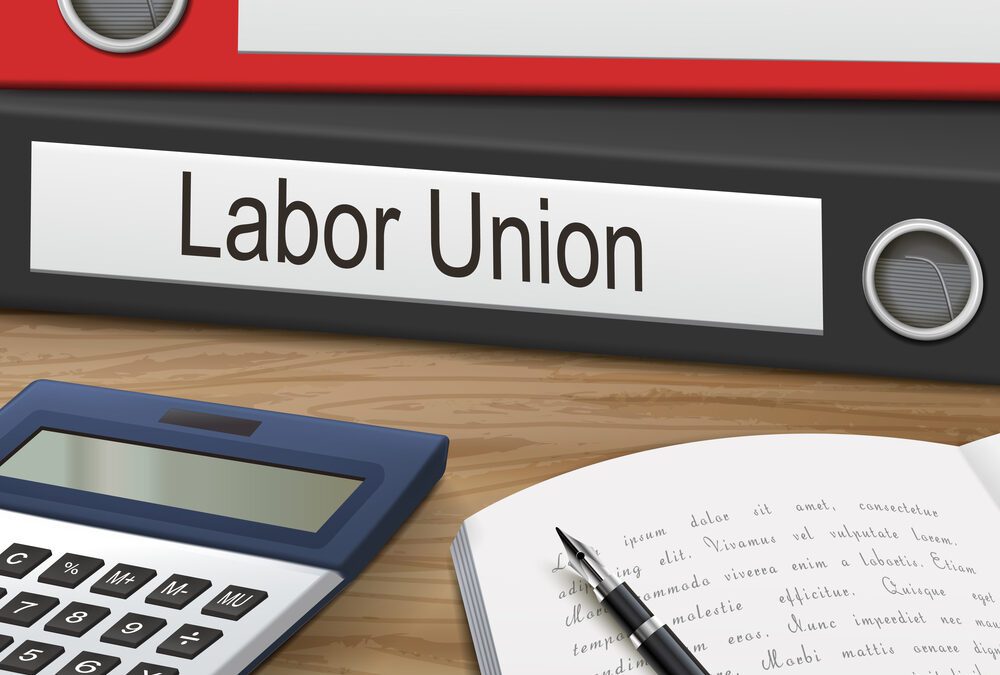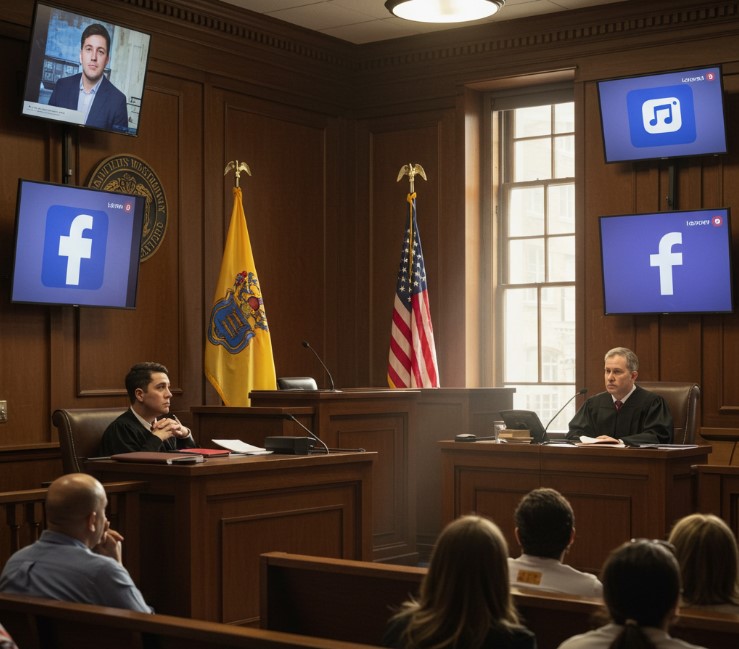This article originally appeared in the New Jersey Law Journal.
In Janus, a 5-4 conservative majority reversed the long-standing right of public sector unions set forth in ‘Abood,’ to collect fair share agency fees from public employees who chose not to join the union.
Under law, private, municipal, state and federal employees have the guaranteed right to form a union to represent their interests on a variety of employment issues, such as wages, hours and conditions of employment. Once a union is formed using a democratic/majority rule process, the union is the exclusive entity that can collectively bargain with the employer. Employees who join the union pay annual dues to cover costs and fees associated with the union’s governance. All employees have the absolute right to decline joining the union. Collective bargaining is what gives a union its strength and power, however, the union is obligated not only to fairly represent the interests of its members, but of its non-members as well. This counter-intuitive reality stems, in part, from the fact that unions derive significant income not only from their members, but also from employees who are compelled to pay dues to unions of which they are not members.
Indeed, until recently, in the 22 states and the District of Columbia known as “collective bargaining” jurisdictions (in contrast to the 28 states and the federal government, known as “right to work” jurisdictions), public, non-union employees were still forced to pay “fair share” or “agency” fees to fund activities that are “germane to [the union’s] duties as [the] collective-bargaining representative” (commonly known as “chargeable expenditures”). Abood v. Detroit Board of Education, 431 U.S. 209, 235-236 (1977). Such fair share fees could not be used to fund “nonchargeable” expenses toward “ideological purposes unrelated to collective bargaining.” Id. at 232.
See also: US Supreme Court Rules Against Unions in Janus v. AFSCME
New Jersey, home to one of the nation’s largest populations of union members, and one of the 22 “collective bargaining” states, also permitted unions to require non-members to pay “fair share fees.” On May 18, New Jersey’s governor, Phil Murphy, in order to strengthen New Jersey’s public sector union’s power (and likely in an effort to ameliorate the anticipated effect of the Supreme Court’s then-impending Janus decision), signed the Workplace Democracy Enhancement Act, P.L. 2018 c. 15, giving New Jersey’s unions substantially more access to union members, non-members and potential members, while also protecting the privacy of public employees’ demographic information. Some of the significant provisions in this new law include the union’s right to: meet with and have meetings with public employees before, after and during working hours and break times at the workplace; be involved in grievances; meet with new hires and get new hires’ contact information within a set period of time; and have access to the employer’s email and government buildings for communication and various meetings.
The seismic shift anticipated by Governor Murphy took place on June 27, when the Supreme Court issued its long-anticipated decision in Janus v. American Federation of State, County, and Municipal Employees, Council 31, 585 U.S. ___ (2018). In Janus, a 5-4 conservative majority reversed the long-standing right of public sector unions set forth in Abood, to collect fair share agency fees from public employees who chose not to join the union, including Illinois-based petitioner, Janus, who did not join the AFSCME union because he opposed “many of the public policy positions that [it] advocates.” 585 U.S. at ___, slip op at 4.
Janus argued that taking agency fees—amounting to 78.06 percent of dues collected in the case at hand—from non-consenting public employees violated the First Amendment as constitutionally-forbidden “coerced political speech.” 585 U.S. at ___, slip op at 5. Writing for the majority, Justice Alito noted that “[c]ompelling individuals to mouth support for views they find objectionable violates that cardinal constitutional command” set forth in the First Amendment and, “in most contexts, any such effort would be universally condemned.” 585 U.S. at ___, slip op at 8. In that vein, Justice Alito noted that “nonmembers were told that they had to pay for ‘[l]obbying,’ ‘[s]ocial and recreational activities,’ ‘advertising,’ ‘[m]embership meetings and conventions,’ and ‘litigation,’ as well as other unspecified ‘[s]ervices’ that ‘may ultimately inure to the benefit of the members of the local bargaining unit.’” 585 U.S. at ____, slip op at 8.
In holding that the rule in Abood permitting the taking of agency fees was specifically rejected, the court noted that the seminal case was poorly reasoned as it had already been diluted and questioned by two other recent Supreme Court cases: Knox v. Service Employees International Union, Local 1000, 567 U.S. 298 (2012), and Harris v. Quinn, 573 U.S. ___ (2014). 585 U.S. at ___, slip op at 7.
The Abood court, which specifically endorsed the payment of compelled union fees, had rationalized that compelled payment on the basis of “labor peace” served governmental interests, Abood, 431 U.S. at 224, envisioning “dissension in the work force” caused by “conflicting demands from different unions.” Id. at 221. On that point, the majority in the Janus court noted that although the Abood court reasoned that “labor peace” is a “compelling state interest,” that court had before it “no evidence that the pandemonium it imagined would result if agency fees were not allowed” and concluded that the Abood court’s “fears were unfounded.” 585 U.S. at ___, slip op at 11-12. The court wrote that the 28 “right to work” states, as well as the federal government, have achieved “labor peace” “through means significantly less restrictive of associational freedoms.” 585 U.S. at ___, slip op at 17 (quoting Harris, 573 U.S., at ___ (slip op., at 30). The court also rejected Abood’s conclusion that avoiding the “risk of ‘free riders’” was a compelling state interest, 585 U.S. at ___, slip op at 13, and concluded that, when weighed against First Amendment objections, that risk was “insufficient.” Id. (citing Knox, 567 U.S., at 311). Aligned with constitutional jurisprudence, the conservative majority excoriated Abood (which, ironically, was joined by arch-conservative Justice Rehnquist), by noting that their holding was not supported by the “original understanding of the First Amendment.”
The Janus court’s ruling that “public-sector agency-shop arrangements violate the First Amendment,” which specifically overturned Abood, goes against the longstanding principle of stare decisis in which the Supreme Court will not “overturn a past decision unless there are strong grounds for doing so.” 585 U.S. at ___, slip op at 134 (citing United States v. International Business Machines Corp., 517 U.S. 843, 855-856 (1968). Cognizant of the significant step the court was taking in specifically overturning one of its relatively long-standing precedents, the court noted that “stare decisis applies with perhaps the least force of all to decisions that wrongly denied First Amendment rights.” 585 U. S. at ___, slip op at 34. Justice Alito listed critical factors to consider in overruling past judicial precedent and wrote that “five of these [factors] are most important here: the quality of Abood’s reasoning, the workability of the rule it established, its consistency with other related decisions, developments since the decision was handed down, and reliance on the decision.” 585 U.S. at ___, slip op at 34-35. Hammering the blow home, Justice Alito proceeded to describe, at exquisite and excruciating length, how the Abood court had failed in its analysis and how the decision stood as an “‘anomaly’” in our First Amendment jurisprudence,” 585 U.S. at ___, slip op at 42, ostensibly echoing a similar sentiment uttered by Justice Powell in his separate concurrence in Abood.
So, what does the Janus ruling mean for New Jersey? It is estimated that New Jersey’s public union membership is approximately 342,000 people, which accounts for about 60 percent of New Jersey’s public workers and over 16 percent of New Jersey employees overall. See, Union Membership and Coverage Database from the CPS, http://www.unionstats.com (last visited July 26, 2018). It is clear that unions will suffer financially at the outset, as many non-members will opt to stop paying fair share agency fees, and some members may decide to terminate their membership with the union.
Additionally, because unions in New Jersey substantially fund politics, political campaigns and special interest constituents, the political climate in New Jersey could change. Also, working conditions, such as wages, may be altered due to the decreases in available funds to support union activity. That being said, even before the Janus ruling, union membership, both nationally and in New Jersey, had been decreasing in the last 10-plus years, so one could proffer that membership is and has been on the decline, despite Janus. With this downward trend, unions have made more of an effort to recruit members, sustain and please members, and form new unions. Therefore, it is clear that robust efforts by unions seem to be a continuing reality. Although New Jersey will be affected by Janus, the Workplace Democracy Enhancement Act will lessen the effects of the Janus ruling on public sector unions in New Jersey. That is because this law, as stated above, greatly enhances unions’ access to and communications with members, non-members and potential members with its comprehensive pro-union provisions.
Unions have existed in the United States in force since the mid-19th century, and between then and the present, have peaked and begun a slow, steady decline. That said, they have shown special resiliency in the public sector and, while Janus will certainly dampen efforts in that sphere to recruit and retain members, any report of unions’ impending demise is certainly exaggerated.
_____________________________________________________________
Nicole S. Croddick is counsel, and attorney Brian J. Chabarek in the Labor and Employment Law Department of Davison, Eastman, Muñoz, Paone of Freehold.













